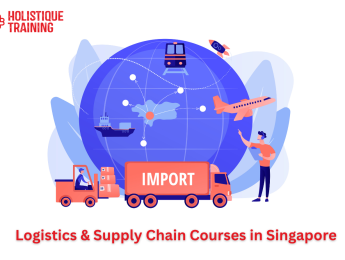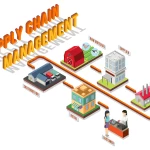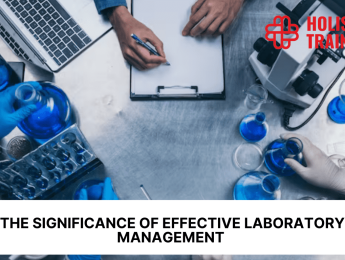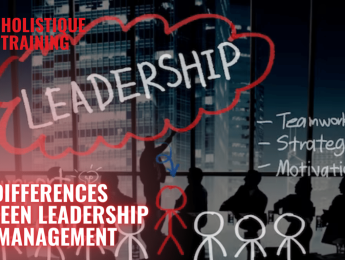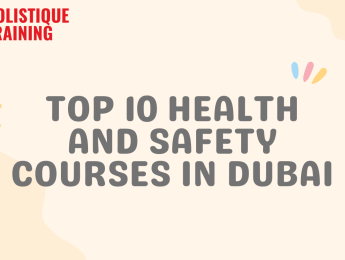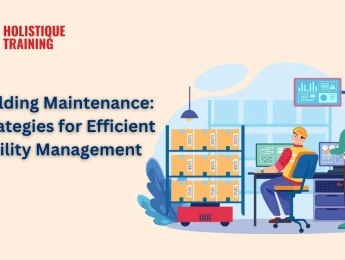- Table of Contents
- 1. Introduction
- 2. Why Singapore is a Leading Destination for Logistics & Supply Chain Studies
- 3. Skills Employers in Singapore Look for in 2025
- Digital Supply Chain & Automation
- Inventory & Warehouse Optimisation
- ERP, WMS, TMS Software Competence
- Data Analytics & Forecasting
- Procurement & Vendor Management
- Sustainability & Green Supply Chain Compliance
- 4. Types of Logistics & Supply Chain Courses in Singapore
- Certificate / Short Courses
- Diplomas
- Bachelor’s Degrees
- Master’s & Postgraduate Programmes
- Executive & Corporate Courses
- 5. Top Institutes Offering Logistics & Supply Chain Programmes (Detailed Breakdown)
- 5.1 National University of Singapore (NUS)
- 5.2 Nanyang Technological University (NTU)
- 5.3 Singapore Institute of Technology (SIT)
- 5.4 Polytechnics (for Diplomas)
- 5.5 Singapore University of Social Sciences (SUSS)
- 5.6 Singapore Management University (SMU) Executive Programmes
- 5.7 SkillsFuture & Industry Certificates
- 6. Course Fees, Scholarships & Funding Options
- 7. Career Opportunities After Studying Logistics in Singapore
- 8. How to Choose the Right Course
- 9. Conclusion
1. Introduction
Logistics and supply chain management are increasingly recognised as the connective tissue of the global economy, enabling goods and services to move from point of origin to point of consumption in a timely, cost-effective and sustainable way. At its core, logistics deals with the planning, execution and control of the movement and storage of goods, services and related information from origin to destination. Supply chain management (SCM) goes further by managing the network of organisations, people, activities, information and resources involved in moving a product or service from supplier to customer. When executed well, supply chains provide competitive advantage through speed, flexibility, cost-control and customer service.
The importance of logistics and supply chain functions in the global economy cannot be overstated. In an era of globalisation, complex value chains extend across continents and time-zones, and the efficiency of logistics networks determines how goods flow across borders, how companies respond to demand fluctuations, and how resilient businesses are in times of disruption. For instance, disruptions such as pandemics, geopolitical shifts or port closures quickly ripple through supply chains, underscoring the strategic importance of logistics in maintaining trade continuity. In this environment, academic and professional training in logistics and supply chain management becomes a critical investment for countries, businesses and individuals alike.
Singapore is a standout example of a world-class logistics hub. The city-state enjoys a strategic geographic location at the crossroads of major shipping routes in Southeast Asia; its deep-water port facilities such as those operated by PSA International, its globally-connected air-freight hub at Changi Airport, its free-trade networks, and its highly pro-business regulatory and infrastructure ecosystem all combine to deliver a high-performance logistics environment. In terms of global performance benchmarks, Singapore achieves one of the highest positions on the Logistics Performance Index (LPI) of the World Bank — for instance, Singapore achieved a score of around 4.3 out of 5 in the LPI in recent years. This ranking signals that Singapore not only has excellent infrastructure, but also efficient customs, tracking and timeliness of shipments.
Studying logistics and supply chain management in Singapore offers students and professionals a real, hands-on exposure to world-class networks, enabling you to learn theory in an environment where practice is very close to global best-practice. In short: Singapore offers more than a classroom — it offers a living logistics laboratory.
In the following sections we will explore why Singapore is a leading destination for these studies; the skills employers are seeking for 2025; the types and levels of courses available; the main institutions offering them; fees and funding; career outcomes; how to choose the right course; and a concluding reflection.
2. Why Singapore is a Leading Destination for Logistics & Supply Chain Studies
There are several inter-locking reasons why Singapore is especially well suited for logistics and supply ‐ chain studies.
Strategic geographic location.
Singapore sits at the heart of Southeast Asia and on one of the world’s busiest maritime corridors. This leads to natural exposure to global shipping, air-cargo flows, regional supply-chain nodes and cross-border logistics activity. For a learner, being physically located in such a hub provides immediate case-study potential, field visits and industrial exposure.
Government investment in smart logistics and Industry 4.0.
The Singapore government actively promotes next-generation logistics, automation, warehouse robotics, AI in supply chains, and green-logistics initiatives. For example, the national “Jobs Transformation Map – Logistics” highlights how Industry 4.0 technologies such as IoT, robotics, automation and data analytics are reshaping logistics roles in Singapore. The stronger the alignment between education and industry, the greater the relevance of a course.
Presence of multinational logistics companies.
Singapore hosts major global logistics players such as DHL, FedEx, Maersk, DB Schenker and specialist cargo firms like SATS Ltd. These firms often engage in partnerships with universities and training institutes, providing internships, industrial attachments and real-world project opportunities. Students studying logistics in Singapore can therefore gain direct access to large logistics operations.
Supportive government initiatives.
Schemes such as SkillsFuture Singapore (SSG), Enterprise Singapore (ESG), and the Economic Development Board (EDB) provide frameworks for reskilling, certifications and industry-academic collaboration. For example, a survey by EDB-Gartner found that roughly 49 % of business leaders in Asia-Pacific identify supply-chain planning as their top area of upskilling need. In practice this means students benefit from a national ecosystem aligned to supply-chain excellence.
Internship and real-world exposure opportunities.
Because of Singapore’s advanced logistics infrastructure and operations, the learner can access port, aviation cargo, warehouse and multimodal logistics hubs for internships or site visits. Studying in Singapore thus means access to live operations rather than purely classroom-based theory.
Altogether, these factors make Singapore not merely a place to study logistics and supply chain, but a place to live it . For students, this means higher relevance, richer learning, and stronger industry credibility. In the coming decades, with global supply-chains under pressure from disruption, sustainability demands and digital transformation, Singapore’s logistics ecosystem is particularly well positioned as a teaching and research site.
3. Skills Employers in Singapore Look for in 2025
In today’s fast-evolving logistics & supply chain sector, employers in Singapore are seeking a combination of technical, digital and sustainability-oriented skills. Below we discuss key skill-areas, then present a summary table mapping skill to job-application.
Digital Supply Chain & Automation
Employers are increasingly expecting logistics professionals to have familiarity with digital supply-chain platforms, robotics in warehouses, automated storage and retrieval systems (AS/RS), and smart transport solutions. The national Logistics Skills Framework identifies “digital planning enabled by big-data and predictive analytics, digital supply-chain platforms” as major emerging opportunities. Understanding how automation interacts with physical logistics gives students a strong edge.
Inventory & Warehouse Optimisation
Efficient warehousing and inventory management remain core to logistics operations. Professionals who can optimise warehouse layout, reduce handling times, implement just-in-time flows, and minimise stockouts are in demand. The ability to align inventory strategy with customer demand and distribution networks is key.
ERP, WMS, TMS Software Competence
Modern logistics operations rely heavily on software systems: Enterprise Resource Planning (ERP), Warehouse Management Systems (WMS), Transport Management Systems (TMS), and data-integration platforms. For example, knowing how to use or configure systems such as SAP Logistics, Oracle SCM, Manhattan Associates, or Blue Yonder can differentiate candidates.
Data Analytics & Forecasting
Data-driven decision making is vital. According to a careers article in Singapore, logistics professionals must be capable of “data analysis, spotting trends, forecasting and using spreadsheets or advanced analytics to plan.” As supply chains become more complex and dynamic, demand-planning, scenario modelling and analytics skills will be central.
Procurement & Vendor Management
Supply-chain roles are no longer purely internal operations — they demand coordination across suppliers, vendors and logistics service-providers. Professionals who understand sourcing strategy, supplier relationship management, contract negotiation, and risk management will have stronger career prospects.
Sustainability & Green Supply Chain Compliance
Finally, sustainability is rapidly moving from optional to essential. Companies are under pressure to reduce carbon emissions, ensure traceability, adopt circular-economy principles and comply with ESG standards. A study of green supply-chain practices underlines how firms are evaluating carbon-tracking, eco-packaging and green logistics techniques. Being able to integrate sustainability into logistics operations is increasingly a differentiator.
Skill vs Job Application Table
Key Skill | Typical Job Role / Application |
Digital supply-chain & automation | Warehouse automation engineer, logistics process optimiser |
Inventory & warehouse optimisation | Inventory planner, warehouse operations manager |
ERP / WMS / TMS software competence | Systems analyst (logistics), transport management system specialist |
Data analytics & forecasting | Demand planner, supply-chain analyst, data insights specialist |
Procurement & vendor management | Sourcing coordinator, vendor relationship manager |
Sustainability & green supply-chain compliance | ESG logistics officer, green-logistics project manager |
These skills reflect the evolving nature of logistics in 2025 in Singapore: it is no longer purely operational, but strategic, digital, collaborative and sustainable.
4. Types of Logistics & Supply Chain Courses in Singapore
The landscape of logistics & supply-chain education in Singapore is rich and varied. Here we outline the main categories of courses and then provide a summary table.
Certificate / Short Courses
These are short-duration programmes (days to months) designed for beginners or working professionals seeking to up-skill or re-skill in specific areas. Examples include workshops under SkillsFuture, short modules at Singapore Institute of Management (SIM) or Singapore University of Social Sciences (SUSS). These courses may cover topics such as supply-chain fundamentals, warehouse software, digital logistics or green-logistics practices.
Diplomas
Diploma programmes (one to three years) are often offered by polytechnics and are ideal for post-secondary students or early-career entrants. They provide foundational knowledge in logistics, inventory, transportation, and supply-chain operations, often with internships built-in.
Bachelor’s Degrees
Bachelor’s programmes (three to four years) target those aiming for professional careers. They cover operations management, logistics, supply-chain design, analytics, and may include industrial attachments. For example, some universities include supply-chain modules within business degrees or engineering logistics tracks.
Master’s & Postgraduate Programmes
These one to two-year courses are for leadership, specialization and advanced roles. Master’s programmes may focus on supply-chain management, logistics strategy, global trade, digital supply-chains and sustainability. They are suitable for those seeking senior roles or career transition.
Executive & Corporate Courses
Short, intensive programmes geared towards managers and executives. These courses focus on strategic supply-chain leadership, digital transformation, vendor-ecosystem management, and are often delivered as executive education modules at business schools or corporate training providers.
Summary Table: Course Types
Level | Duration | Ideal For | Examples |
Certificate / Short | Days – Months | Beginners or working staff | SkillsFuture short-modules, SIM workshops, SUSS workshops |
Diploma | 1 – 3 years | Students & early-career professionals | Polytechnics: SP, NP, RP Logistics Diplomas |
Bachelor’s Degree | 3 – 4 years | Professional careers | NUS, NTU, SIT Supply-Chain programmes |
Master’s & Postgraduate | 1 – 2 years | Leadership & specialisation | NUS MSc Supply Chain, NTU MBA + Logistics Track |
Executive & Corporate | Short & Intensive | Managers & executives | SMU Executive Academy, PSA Institute courses |
By matching your career stage and ambitions to the appropriate level of course, you can pick the right investment in time, cost and outcome.
5. Top Institutes Offering Logistics & Supply Chain Programmes
In this section we provide a more detailed look at major institutions in Singapore offering logistics & supply-chain programmes. If you are writing for a British-English audience, you might emphasise the international credentials, partnerships and practical learning elements.
5.1 National University of Singapore (NUS)
NUS offers comprehensive supply-chain and logistics education at undergraduate and postgraduate levels. For example, their MSc in Supply Chain Management is designed for professionals seeking specialisation, and their BBA (Business Administration) may include an Operations & Supply-Chain track. The strength of NUS lies in its global ranking, rigorous research, strong industry partnerships and access to Singapore’s logistics ecosystem. Students benefit from exposure to top-tier faculty, international exchanges, and live case-studies with global logistics firms. If you are aiming for roles in strategic supply-chain consulting, leadership in logistics, or global supply-chain management, NUS is a strong choice.
5.2 Nanyang Technological University (NTU)
NTU offers an MSc in Supply Chain & Logistics, focusing on digital operations, analytics and logistics technology. With its engineering heritage, NTU emphasises the intersection of technology and logistics — for example, smart warehouses, AI in transport, robotics in inventory operations. The university provides excellent lab-facilities, and strong Asia-Pacific industry linkages. For students interested in the digital transformation of supply-chain networks, NTU provides a compelling platform.
5.3 Singapore Institute of Technology (SIT)
SIT offers a BEng in Supply Chain & Logistics (in collaboration with a German university) which emphasises applied learning and industrial attachments. SIT is ideal for those who favour a more practice-oriented learning mode, with industry placements and applied projects embedded in the curriculum. For early-career students who want to gain real-world exposure and graduate with strong industry readiness, SIT is a good fit.
5.4 Polytechnics (for Diplomas)
The polytechnics in Singapore offer high-quality diploma programmes that are well-recognised by industries.
- Singapore Polytechnic (SP) – Diploma in Supply Chain Management.
- Ngee Ann Polytechnic (NP) – Diploma in International Trade & Logistics.
- Republic Polytechnic (RP) – Diploma in Supply Chain Management.
These programmes typically include internships, overseas exposure, and attachments to logistics hubs or warehousing operations. They suit students who are completing their secondary education and wish to enter the logistics industry quickly or proceed to bachelor’s thereafter.
5.5 Singapore University of Social Sciences (SUSS)
SUSS caters to working professionals and offers part-time degrees, modular courses and flexible scheduling. For mid-career learners who want to shift into supply-chain or logistics roles, SUSS offers a viable pathway. The advantage is the flexibility of timing, relevance of curriculum to industry needs and alignment with Singapore’s national adult-learning ecosystem.
5.6 Singapore Management University (SMU) Executive Programmes
SMU’s Executive Academy provides short, high-impact modules and certifications in supply-chain strategy and leadership. These programmes are targeted at senior professionals and managers who wish to enhance their strategic thinking in supply-chain networks, global logistics optimisation, vendor ecosystem management and digital-logistics transformation. If you are already in mid/senior-level roles, this is a strong fit.
5.7 SkillsFuture & Industry Certificates
Beyond the formal longer-duration programmes, Singapore extends many short professional up-skilling options via SkillsFuture, industry certificates, workshops and training grants. Singapore citizens and permanent residents may enjoy subsidies, making these options cost-effective. International students usually pay full rates but still benefit from locally-relevant training aligned with industry demands.
Each of these institutions appeals to different learner profiles — from early-career diploma students to experienced executives. When selecting a programme, you should evaluate curriculum, industry linkage, internship/applied learning, faculty expertise, and accreditation.
6. Course Fees, Scholarships & Funding Options
Navigating the cost and funding dimension is vital before committing to a course.
General tuition ranges:
- Diploma programmes at polytechnics typically cost in the range of SGD 15,000–25,000 (over 2–3 years) for local students (international fees are higher).
- Bachelor’s degrees at universities might range from approx. SGD 25,000–45,000 per year (for local students; international students may pay SGD 40,000–55,000 per annum).
- Master’s programmes can cost SGD 30,000–60,000 depending on length and institution.
- Short certificate/executive courses vary widely (SGD 2,000–10,000) depending on duration and provider.
Scholarships and subsidies:
Singapore’s SkillsFuture and SSG subsidise many short and modular courses for Singapore citizens/PRs. Companies may sponsor employees under the Productivity Solutions Grant (PSG) or Job-Redesign initiatives. For international students, scholarships may be available through the institution or via bilateral agreements, but are generally more competitive.
Employer-sponsored training:
Many logistics firms in Singapore invest in the training of their staff. If you already work in the sector (or have a placement), you may negotiate partial or full funding via your employer as part of professional development.
In short, while logistics and supply-chain courses represent an investment, Singapore offers a range of funding mechanisms which enhance accessibility — particularly for citizens and working professionals. As you evaluate programmes, check the availability of bursaries, apprenticeships, employer-linkages and whether the institution provides work-based learning that may offset cost via paid placements.
7. Career Opportunities After Studying Logistics in Singapore
Completing a logistics or supply-chain programme in Singapore opens up a broad spectrum of careers across industries. Below are typical job roles, sectors, starting career paths and growth opportunities.
Job Roles
- Supply Chain Analyst – responsible for data analysis, forecasting and performance monitoring of the supply-chain network.
- Logistics Coordinator – manages the movement, storage and distribution of goods, ensuring timely delivery and cost-control.
- Procurement Executive – focuses on sourcing, supplier management, contracts and vendor performance.
- Demand Planner – forecasts demand, coordinates inventory and aligns supply-chain operations with sales.
- Warehouse Operations Manager – supervises warehouse performance, layout optimisation, automation and team performance.
- Freight & Shipping Coordinator – handles shipping documentation, cross-border logistics, customs clearance and freight forwarding liaison.
Hiring Sectors
- E-commerce (e.g., Shopee, Lazada, Amazon) where rapid distribution is critical.
- Ports & aviation cargo (Singapore’s port and air-cargo hubs).
- Retail & FMCG, requiring integrated supply-chains from factory to store.
- Oil & gas supply-chains and energy logistics, where precision and reliability matter.
- Pharmaceuticals & medical logistics, especially with cold-chain and regulatory complexities.
Starting salaries and growth
While exact salary figures vary by company, role and experience, a graduate supply-chain analyst might expect a starting salary around SGD 3,000 –4,000/month (for Singapore-based roles), with performance bonuses and benefits. With experience (3-5 years), roles such as warehouse operations manager or demand planner can command higher compensation and managerial responsibilities. Over time, senior roles (head of supply chain, logistics director) can lead to six-figure annual remuneration. According to a recent article , the supply-chain sector in Singapore emphasises vertical career growth – for instance a demand-planner could progress to supply-chain manager overseeing a team, then head of supply-chain overseeing 8–15 staff. Thus the investment in training can yield tangible career advancement.
Furthermore, given Singapore’s role as a regional logistics hub, the experience gained here may also open up roles across Southeast Asia and beyond – enhancing your international mobility and prospects.
8. How to Choose the Right Course
Selecting the right course in logistics and supply chain management requires careful alignment of your career stage, goals and learning style.
Consider your career stage:
If you are a secondary-school leaver or early-career entrant, a diploma might offer rapid industry entry. If you already have some work experience and want to move into a supervisory or specialist role, a bachelor’s or postgraduate degree is appropriate. For senior professionals seeking strategic leadership roles, an executive certificate could be ideal.
Match your goals → operational vs strategy/leadership:
Are you aiming for hands-on operations (warehouse, distribution, inventory) or strategic roles (supply-chain design, analytics, vendor ecosystem, global logistics)? Operational careers benefit from diplomas or bachelor’s with strong industry attachments. Strategic roles may require a master’s or executive programme emphasising analytics, global trade, sustainability and leadership.
Evaluate internships, faculty, software training, industry links:
A strong programme will offer practical exposure (site visits, workshops, real-world projects), training in logistics software (ERP, WMS, TMS), faculty with industry experience, and active partnerships with logistics firms. Check whether the course has guest lectures by practitioners, lab facilities, and access to Singapore’s logistics hubs.
By reflecting on these criteria and matching them to your profile, budget, timeframe and career ambition, you’ll be better placed to select a course that truly advances your trajectory.
9. Conclusion
In sum, Singapore offers a compelling and distinctive platform for logistics and supply-chain education in 2025. With its strategic location, world-class infrastructure, multinational logistics presence and government support for Industry 4.0 and green supply-chains, the city-state is more than a study-destination—it is a functioning logistics ecosystem. The evolution of logistics into a digital, sustainable, data-driven domain means that training here gives both relevance and credibility.
For students and professionals, choosing the right level of course, aligning your ambition with the curriculum, and making use of the practical opportunities in Singapore can set you on a strong path in a global and high-growth sector. Whether your goal is to become a supply-chain analyst, a warehouse operations manager, or a strategic logistics leader, the right training in Singapore can serve as a springboard for long-term career impact. Embrace the opportunity, invest wisely, and position yourself at the forefront of next-generation logistics and supply-chain management.


